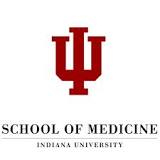Use of ACTIMMUNE in Patients With ADO2
| Status: | Active, not recruiting |
|---|---|
| Conditions: | Osteoporosis |
| Therapuetic Areas: | Rheumatology |
| Healthy: | No |
| Age Range: | 3 - 65 |
| Updated: | 8/10/2018 |
| Start Date: | January 2016 |
| End Date: | December 2020 |
Phase 2a Study of Interferon Gamma-1b for the Treatment of Autosomal Dominant Type 2 Osteopetrosis
This study is an open label use of ACTIMMUNE for patients with Autosomal Dominant
Osteopetrosis Type 2(ADO2). Effects of treatment will be evaluated after 14 weeks on
ACTIMMUNE by bone resorption markers. This study will treat 12 patients with ADO2 recruited
from Indiana University and Riley Hospital for Children at Indiana University Health.
Osteopetrosis Type 2(ADO2). Effects of treatment will be evaluated after 14 weeks on
ACTIMMUNE by bone resorption markers. This study will treat 12 patients with ADO2 recruited
from Indiana University and Riley Hospital for Children at Indiana University Health.
This is a single center, open-label, dose-escalation study evaluating the efficacy, as
defined by biochemical endpoints, and safety profiles of ACTIMMUNE in ADO2 subject.
The investigators will treat 12 ADO2 subjects (children or adults age 3-65) with Actimmune®
via a dose escalation protocol to a dose of 50 µg/m2 subcutaneously three times per week
(TIW) for 8 weeks. If serum CTX does not increase by more than 25% by week 8, the dose will
be increased to 100 µg/m2 subcutaneously TIW.
Individual subjects in whom ACTIMMUNE administration increases bone resorption markers during
the 14 weeks of this trial will be eligible for a 1 year extension trial.
defined by biochemical endpoints, and safety profiles of ACTIMMUNE in ADO2 subject.
The investigators will treat 12 ADO2 subjects (children or adults age 3-65) with Actimmune®
via a dose escalation protocol to a dose of 50 µg/m2 subcutaneously three times per week
(TIW) for 8 weeks. If serum CTX does not increase by more than 25% by week 8, the dose will
be increased to 100 µg/m2 subcutaneously TIW.
Individual subjects in whom ACTIMMUNE administration increases bone resorption markers during
the 14 weeks of this trial will be eligible for a 1 year extension trial.
Inclusion Criteria:
1. Subject is diagnosed with clinically significant ADO2 as determined by the
investigator.
Individuals will be screened who have either been diagnosed with osteopetrosis and
have a clinical phenotype and/or family history that is consistent with ADO2, have
been told that they have an abnormally high bone density (>3SD above mean for age and
sex), or a clinical presentation consistent with ADO2. Initial contact will be with
members of ADO2 kindreds who have known disease.
2. Provide written informed consent for competent adults and for minors provide written
assent (if appropriate) and written informed consent by a legally authorized
representative after the nature of the study has been explained, and prior to any
research-related procedures
3. Ages 3 to 65 years inclusive.
4. Willing to use reliable method of contraception [i.e. oral or patch hormonal
contraceptives, intrauterine device, physical barrier methods, tubal ligation or
hysterectomy, vasectomy (partner) or abstinence] throughout the study and for 30 days
after the last dose of study drug.
Exclusion Criteria:
1. Any unstable illness that in the investigator's opinion precludes participation in the
study.
2. Serum calcium >10.6 mg/dl at screening.
3. eGFR using the MDRD equation in adults (or the modified Schwartz equation for
children) of < 35 ml/min/1.73m2.
4. Nephrocalcinosis on screening ultrasound Grade 3 or higher [18]. Subjects with grade 3
or higher nephrocalcinosis will be excluded because we anticipate that use of study
drug will increase bone resorption, resulting in increased urinary calcium excretion,
which could, potentially, lead to worsening nephrocalcinosis. The grading scale is
listed below:
0 = Normal
1. = Faint hyperechogenic rim around the sides and tip of the medullary pyramids
2. = More intense echogenic rim with echoes faintly filling the entire medullary pyramid
3. = Intense echoes throughout the medullary pyramid
4. = Solitary focus of echoes at the tip of the medullary pyramid/nephrolithiasis
5. Use of any investigational product (drug or device) within 30 days prior to
randomization.
6. Subject reported history of hepatitis C.
7. A recent (past 5 years) history of alcoholism or intravenous drug abuse.
8. History of hypersensitivity to IFN-ɣ or E. coli-derived products.
9. History of liver disease as evidenced by laboratory results at Screening (aspartate
aminotransferase [AST] or alanine aminotransferase [ALT] >2x the upper limit of normal),
except when in the opinion of the investigator the liver disease is caused by extra
medullary hematopoiesis.
10. Pregnant or nursing women or those who plan on becoming pregnant during the study.
We found this trial at
1
site
340 W 10th St #6200
Indianapolis, Indiana 46202
Indianapolis, Indiana 46202
(317) 274-3772

Phone: 317-948-2601
Indiana University School of Medicine With more than 2,000 students in 2013, the Indiana University...
Click here to add this to my saved trials